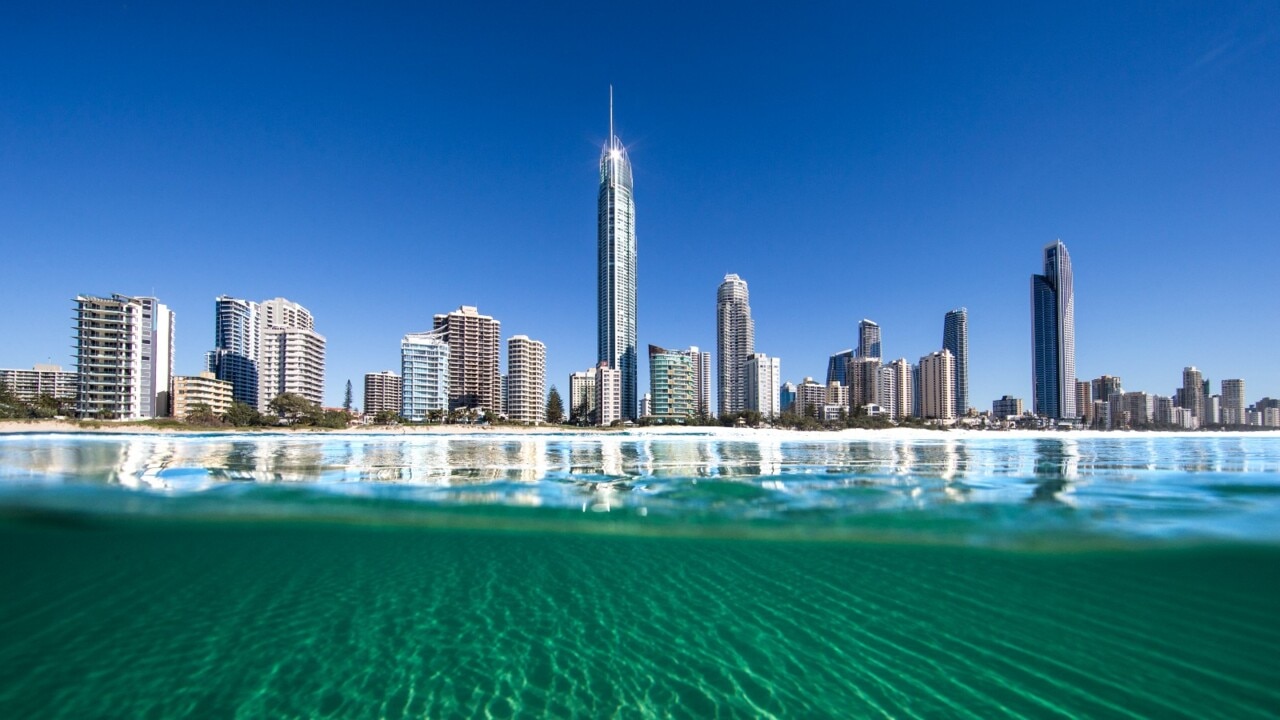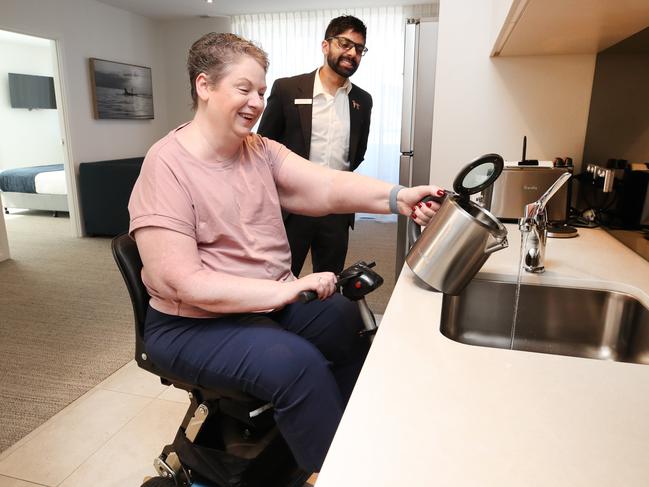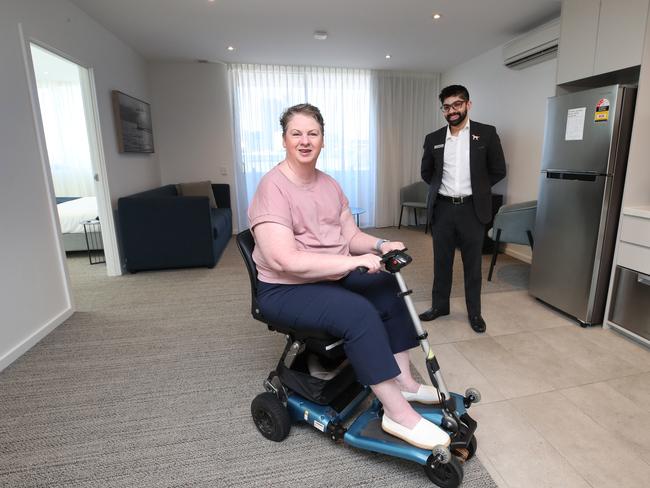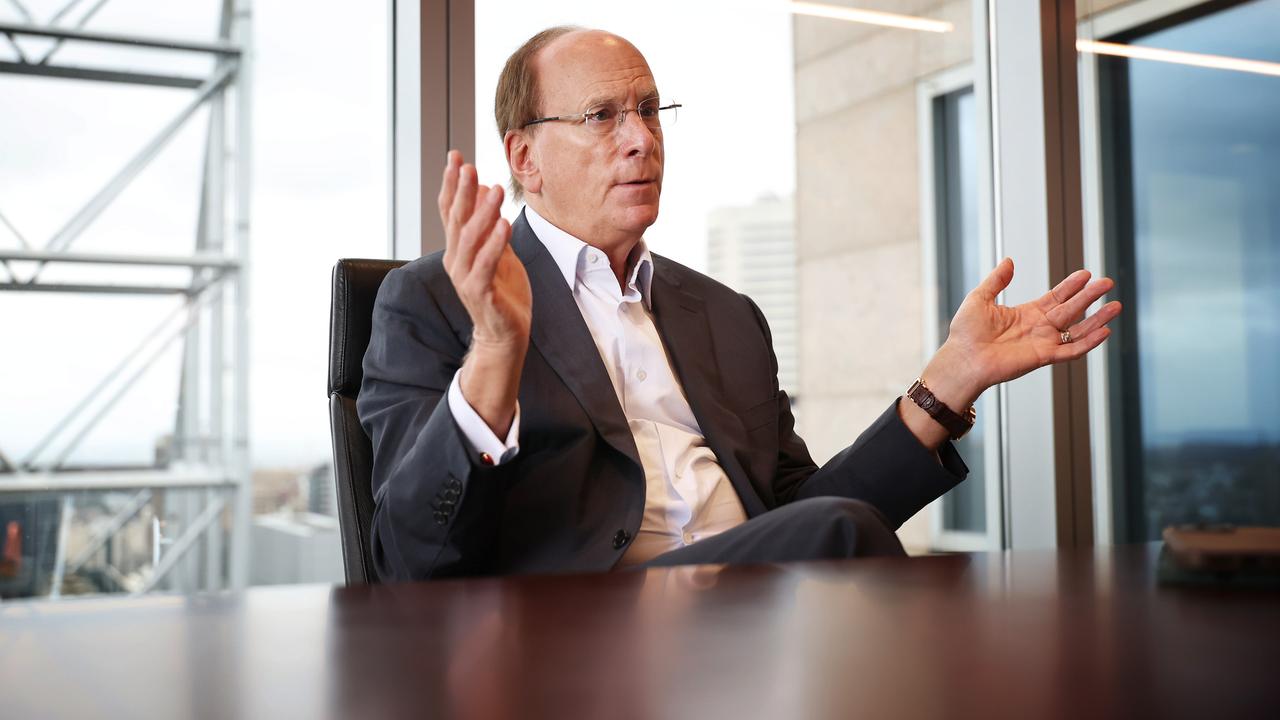Gold Coast tourism providers urged to up their game to tap into $3.3 billion market
Tourism providers are being warned they risk missing the boat on one of the fastest growing markets in Australia. Here’s how they risk missing out.

Business
Don't miss out on the headlines from Business. Followed categories will be added to My News.
GOLD Coast tourism providers are being warned to up their game on accessible travel or risk missing out on a slice of one of Australia’s fastest growing markets.
People with a disability account for 17 per cent of the total tourism revenue in Australia, worth $3.3 billion and growing.
Yet Kerry Williams from agency Accessible Accommodation said many hotels were still failing to cater properly for the sector.
“While Australian hotels offering accessible accommodation are required to adhere to regulations to advertise as accessible, this doesn’t necessarily translate to guest comfort for those living a disability,” Ms Williams said.
Ashlee Morton, who has been a paraplegic since she was two years old, said she has had countless experiences with hotel rooms advertised as accessible but failed to live up to the billing.
“I travel a lot – for work and pleasure and have had too many negative experiences when checking into a hotel,” she said.
“Many hotels meet minimum requirements to claim they’re accessible yet having no lived experience, don’t fully understand what travellers with disabilities need to be comfortable.”

Surfers Paradise woman Jane Blundy, who has multiple sclerosis, said properties often took a one size fits all approach which failed to recognise that people had different needs.
“My needs are assisted walking,” Ms Blundy said.
“Lifts are good, stairs are difficult, all that kind of stuff.
“But what they do is they just put you into one category and they put you in a fully accessible room. That makes me feel more disabled than I actually am. I don’t need all that. But no one asks me those questions.”
Ms Blundy said problems sometimes only became apparent upon arrival, meaning trips began on a sour note.
“A lot of properties, you drive up to the front door and it’s ten stairs to get in,” she said. “Quite often you find your carer or partner is asked to go in, sort everything out, and then your access is through the basement.”

Accessible Accommodation has teamed up with Spinal Cord Injuries Australia (SCIA) to launch a training program for providers.
SCIA CEO Dianne Lucas said the training could help businesses tap into a burgeoning market.
“We’ve created this training program to work with accommodation providers on their accessible offerings so they not only improve the travel experience for people with disabilities and accessibility needs but also so these providers can maximise their business potential,” Ms Lucas said. “It’s a win-win.”
Among hotels that score high marks with travellers with accessibility needs is Quest Robina.
Rooms Division Manager Kieren Verma said staff aimed to ensure guests “don’t have to worry about anything” on arrival.
“We want to make their stay pleasant. It’s as simple as that,” Mr Verma said.
“We love our guests. We are nothing without our guests. And if you love your guests you want to get everything right so they don’t have to worry.”
Mr Verma said there was constant demand for the hotel’s accessible rooms, highlighting the size of the market.
“Since we opened in 2020 these accessible rooms are always occupied,” he said.
* To learn more about the Inclusion Services Training Program, visit scia.org.au



